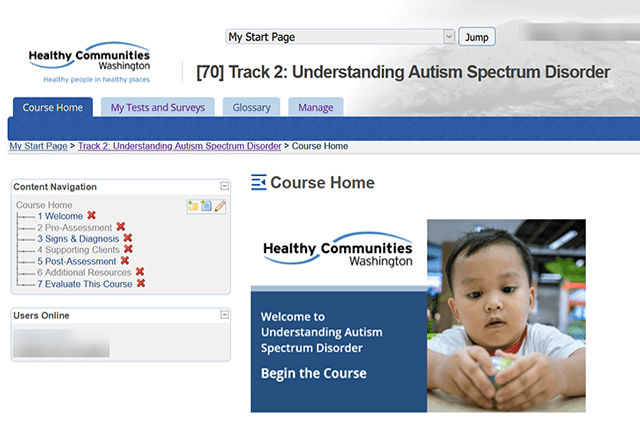Anyone planning an e-learning program has come up with this question. What is the best way to test your learners’ knowledge at the end? Quizzes are usually an okay alternative, but there have to be other assessment types that are more engaging and can serve a purpose later on… right?
Especially if your training is more practical than the average compliance certification, it’s helpful to have a few different formats to turn to that’ll be more interesting and challenging for learners. With that in mind, we set out to explore five different ways to measure your students’ progress through your online learning program.
5 Types of Assessments To Evaluate the Success of Your Online Training
Final Presentation
Let’s start with the classics. There’s a reason final presentations are staples across the country. When done well, an essay or a spoken presentation can demonstrate the student’s comfort levels with a topic.
These types of assessment work because explaining something in your own words is a foolproof way to measure your understanding.
Essays and presentations are effective for programs with a lot of depth and complex topics that open the door for debate and require participation. To increase your learners’ chances of success, assign the topics early and consider dividing the presentation into multiple milestones, like an outline, preliminary research and resources, a draft, and the final version.
Debate
If your training is synchronous or hybrid, you’ll want to consider including debates in your programming.
There’s a reason debate is a big part of many high schools’ programs. It promotes critical thinking, improves oral and written communication skills and helps overcome the fear of public speaking.
Ensure success by choosing real-world relevant topics. And request arguments for and against each side of the coin. Even those with a black-and-white perspective will walk away appreciating the nuances and with a deeper understanding of the topic after participating in these types of assessment.
Case Study
Case studies are an excellent assessment for bringing different types of knowledge to practical applications.
In this case, your learners must develop a case study (ideally based on real situations) that showcases how the training applies in the real world, breaking down the goal, the challenges, the steps, and the end results.
In the context of online training, a case study may focus on a specific outcome. For example, if your training is about outreach programs, learners could create a case study based on a local outreach initiative. They can answer questions such as how it was developed and what it achieved.
Demonstration of Skills
A demonstration of skills is a real-time presentation students design to, well, demonstrate that they acquired the necessary skills to complete their work in real life.
These assessment types work well for practical skills like health screenings or research. Plus, it helps build their confidence as they set out to use their new skills on the field.
You can plan a demonstration of skills by creating teams where one participant has a set of symptoms or issues. Then, it’s up to the other participant to run the screening and come up with a result. Ideally, they will explain the thought process and the steps followed to achieve the conclusion. This works well for food insecurity, substance use, and behavioral health, for example.
Access a Resource
Technology is a common barrier for patients accessing necessary care and services. Having your staff experience the process firsthand is effective if they will be facilitating this type of service routinely.
For example, learners can follow the process of signing up for a health program. They can also create an account to download social service brochures and resources. You’ll get two benefits out of this. First, a staff that truly understands what patients must go through to get necessary resources. And second, real feedback to improve processes that may prevent people from getting the help they need.
It’s easy to apply these types of assessment. Either have learners go through the process in real time or plan for some type of way to prove that they completed the assessment successfully, like downloading a filled form or submitting a questionnaire as a final step.
Online Learning Assessments Don’t Have To Be Boring
Quizzes are a classic assessment type for a reason. They’re easy to plan and can be highly effective, especially for comparing pre- and post-program results. In fact, we’re big proponents of using a quiz as a pre-assessment to measure your students’ starting points as they dive into course materials.
However, they don’t have to be your only option. Including a range of different types of assessment throughout your program will make the online learning experience more interactive and engaging for learners, improving their outcomes and, ideally, creating something useful for them to take into the real world once your training is over.
Are you in the early stages of developing an online learning program? Talance is here to help. With over two decades of online training experience for health agencies, we’re your trusted partner in designing and launching successful online training for your staff. Book a consultation now to learn about how we can work together.
Online Learning: Beginner’s Guide for Health Agencies
Your Online Learning: Beginner’s Guide for Health Agencies includes everything you’ll need to launch a successful online learning program for your staff.



